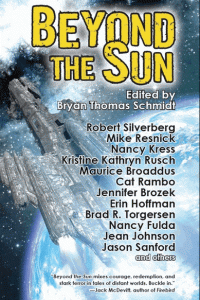I went through a lot of drama in my former marriage due to my wife’s mental illness. I didn’t realize until recent events how much that changed me. For one, I have a very low tolerance for other people’s unnecessary drama these days. There are things worth drama and things that are blown out of proportion. I see this a lot these days. Rumors, scandals and drama abound. People assume, get angry, start hurling insults, and it just escalates into real nastiness from there. In the midst of such overwrought drama, real issues, real problems that deserve the attention get lost. People lose interest because they hate conflict and drama. Change doesn’t occur.
There are a few things I have learned that I wish a few others would learn about these kinds of situations. Here they are:
1) Freedom of Speech does not just apply to those you like and agree with. People these days are quick to demand that those they find offensive shut up. So much for freedom of speech. Apparently it only applies to those who say the right things. Unfortunately, a little document called the United States Constitution would take issue with that.
2) People have a right to an opinion of their own. Even if it’s not the same as yours. That’s a founding principle for democracy, folks. And it should be treasured and respected.
3) When someone is offended by something because of their assumptions and background, not specific words, they are not due an apology. Happens a lot these days. Someone writes something and people interpret it as offensive. They demand an apology. Others line up to support them. But what the author owes them is: nothing. Common courtesy would suggest a clarification might be prudent even polite. And if the words themselves were clear and inherently offensive, then an apology would be appropriate. But if the complainers takes meaning not inherent in the words, they are choosing to be offended by interpreting the words a certain way. It’s not them to whom an apology is due. They owe one to the author. Especially if a clarification was offered and they refuse to accept it.
4) Sensitivity and Respect go both ways. If you want people to be sensitive to your feelings, etc. or those of others around you, you cannot be dismissive of theirs. Impugning anyone with whom you disagree is no more appropriate or acceptable than anything you might accuse them of saying. If the response is just as or more offensive than what provoked it, you are also just as wrong. Bullying in the name of anti-bullying is still bullying, folks. Bigotry in the name of anti-bigotry is still bigotry, too.
5) Your views can be just as offensive as those of your opponents. Especially for those watching you shove them arrogantly down everyone’s throats. In fact, I know many people who agree in principle with the loud voices who wouldn’t stand up and be counted because they don’t want to “act like that.” The harshness of the behavior does more harm than good to the cause. You won’t convince anyone to change by chasing them off with rudeness and insults. If you are so aggressive that people shut up and walk away, you have lost, not won. You have defeated your cause. You have not been heard.
6) Just because a group someone belongs to was guilty in the past or has currently guilty members does not make all members of said group responsible. This is a big one. “You are a priveleged white male, so you are guilty of racism, sexism, etc. by being a white male.” This is just one common example. Sorry, but no dice. I am not responsible for the sins of my ancestors. I am responsible for my own sins and actions. If you can’t separate the two, the problem lies with you. This article on Kafkatrapping and Logical Fallacies addresses how ridiculous these claims really are. And I think we should judge people as individuals not classes, groups, etc. Isn’t that what eliminating discrimination is all about?
If more people remembered these things, I think the internet and society would be more pleasant. Certainly Science Fiction and Fantasy as a community could benefit, but I believe that’s just a reflection of broader culture. I need to remember these things. I hope my readers will as well. Most of all, I hope some will learn to do them. Productive and effective communication doesn’t occur well in the irrational environment of inflamed emotions. But it can occur in productive, reasoned dialogue. As I said before, I’ll say it again, stopping the insult hurling and talking is the better path.
For what it’s worth…


